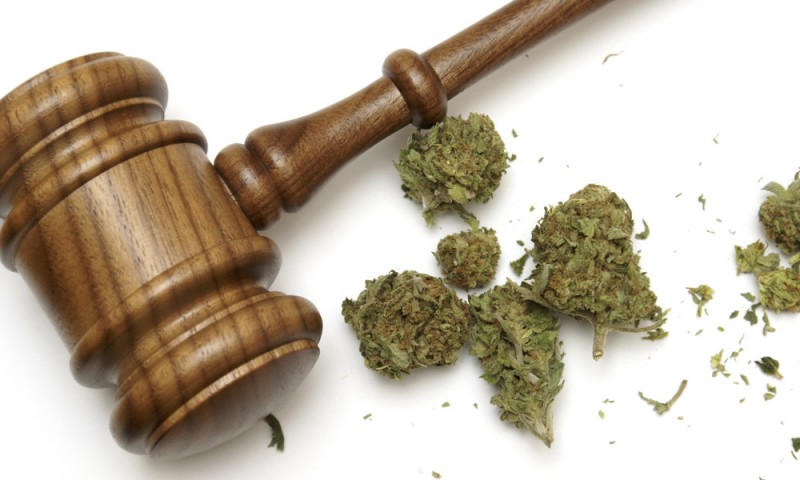
In State v. Rose, the WA Court of Appeals Division III decided to reverse Mr. Rose’s conviction for Possession of Marijuana because Washington’s general criminal prosecution saving statute does NOT permit a prosecution for less than 1 ounce of marijuana that was pending when Initiative 502 became effective.
On June 26, 2012, defendant Justin Rose was fishing on the Yakima River below the Roza Dam when he and his companions were approached by a Washington Fish and Wildlife agent interested in checking for their fishing licenses. The Fish and Wildlife agent noticed that Mr. Rose was smoking. Based on the agent’s training and experience, he believed Mr. Rose was smoking marijuana from a bong. When the agent told Mr. Rose what he had seen, Mr. Rose admitted he had been smoking marijuana and handed over the bong, which contained some marijuana, to the agent. Mr. Rose was over age 21 at the time. He was charged with one violation of RCW 69.50.4014 (possession of less than 40 grams of marijuana) and one violation of former RCW 69.50.412(1) (2002) (use of drug paraphernalia).
In October 2012, Mr. Rose entered into a deferred prosecution agreement with the State, staying the prosecution. For those who don’t know, a deferred prosecution is an agreement between someone who is charged with a crime and the State Attorney’s Office. This agreement will require that within a specified period of time, the person charged with a crime will complete all requirements in the agreement. The State agreed that if Mr. Rose complied with the conditions. identified in the agreement for one year, it would move to dismiss both charges. The conditions imposed on Mr. Rose included performing community service, paying a fee and costs, obtaining an alcohol and drug evaluation, and fully complying with any recommendation of alcohol or drug treatment or other services resulting from the evaluation.
Initiative 502 came into effect while Mr. Rose’s case was pending. The law unconditionally decriminalized possession of less than one ounce of marijuana by persons 21 and over, and did remove marijuana paraphernalia from the unlawful categories of paraphernalia.
Unfortunately, Mr. Rose violated the conditions of his deferral agreement by failing to enter into an intensive outpatient treatment program. The district court revoked the agreement, proceeded to a bench trial, and found Mr. Rose guilty of both counts.
Before sentencing, Mr. Rose moved to dismiss the charges based on the decriminalization of his offenses by I-502. The district court denied Mr. Rose’s motion. It recognized that RCW 10.01.040 – which provides that offenders are prosecuted under the laws in effect at the time of their offenses – does not apply if intervening legislation conveys a contrary intent. It sentenced Mr. Rose to 180 days confinement. Mr. Rose appealed to the Superior Court, which upheld his convictions. In response, he successfully appealed his case to the WA Court of Appeals.
The WA Court of Appeals reversed Mr. Rose’s convictions. It acknowledged that although the common law provides that pending cases be decided according to the law in effect at the time of the decision, the Washington legislature adopted a criminal prosecution saving statute, now codified at RCW 10.01.040, whose saving clause “presumptively ‘save[s]’ all offenses already committed and all penalties or forfeitures already incurred from the effects of amendment or repeal,” requiring that they be prosecuted under the law in effect at the time they were committed “unless,” as the statute provides, “a contrary intention is expressly declared in the amendatory or repealing act.”
Here, the WA Court of Appeals sought to reconcile these countervailing laws.
The Court reasoned that in this case – and unlike actual laws written legislatures – we are dealing with an initiative to the legislature:
“While standard rules of statutory construction apply, our concern is with the intent of the voters. The issue is whether an intent by the voters to apply its decriminalization provisions to stop pending prosecutions is fairly conveyed by the initiative.”
The Court further reasoned that we look at the language of 1-502 from the perspective of the average informed lay voter rather than from the perspective of the legislature. It acknowledged that average lay voters presented with an initiative that they are told will stop treating adult marijuana use as a crime are more likely to make the assumption that prosecution will be stopped on the effective date. Consequently, and in these rare cases where legislation includes additional language that conveys disapproval or concern about continued prosecution, the Court felt compelled to respect the intent of the voters.
My opinion? Good decision. Washington General Criminal Prosecution Saving Statute should not allow prosecutors to enforce archaic laws which were ultimately killed by the will of the voters. Period. Kudos to Division III.
Please contact my office if you, a friend or family member are charged with a crime. Hiring an effective and competent defense attorney is the first and best step toward justice.










